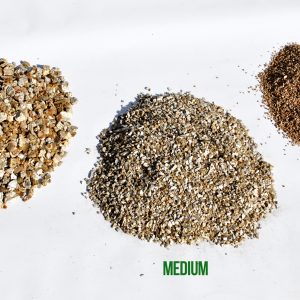Castor Oil in Nairobi, Kenya
Castor oil is a vegetable oil that is used for a wide range of cosmetic and medical purposes. It is said to provide health benefits for the face and skin.
Insulation World Kenya Limited is the leading supplier of Castor Oil in Nairobi, Kenya and across the borders. Call us today on 0722 401 175 to place your order.
Description
Castor oil is a vegetable oil pressed from castor beans. It is a colorless to very pale yellow liquid with a distinct taste and odor. Its boiling point is 313 °C and its density is 0.961 g/cm³. It includes a mixture of triglycerides in which about 90% of fatty acids are ricinoleates
Uses of Castor Oil
· Food and preservative
In the food industry, food-grade castor oil is used in food additives, flavorings, candy (e.g., polyglycerol polyricinoleate in chocolate), as a mold inhibitor, and in packaging. Polyoxyethylated castor oil (e.g., Kolliphor EL) is also used in the food industries.
In India, Pakistan, and Nepal, food grains are preserved by the application of castor oil. It stops rice, wheat, and pulses from rotting. For example, the legume pigeon pea is commonly available coated in oil for extended storage.
· Skin and hair care
Castor oil has been used in cosmetic products included in creams and as a moisturizer. Small amounts of castor oil are frequently used in cold-process soap to increase lathering in the finished bar. It also has been used to enhance hair conditioning in other products and for supposed anti-dandruff properties.
· Coatings
Castor oil is used as a biobased polyol in the polyurethane industry. The average functionality (number of hydroxyl groups per triglyceride molecule) of castor oil is 2.7, so it is widely used as a rigid polyol and in coatings. One particular use is in a polyurethane concrete where a castor-oil emulsion is reacted with an isocyanate (usually polymeric methylene diphenyl diisocyanate) and a cement and construction aggregate. This is applied fairly thickly as a slurry, which is self-levelling. This base is usually further coated with other systems to build a resilient floor.
Castor oil is not a drying oil, meaning that it has a low reactivity with air compared with oils such as linseed oil and tung oil. Dehydration of castor oil yields linoleic acids, which do have drying properties.In this process, the OH group on the ricinoleic acid along with a hydrogen from the next carbon atom are removed yielding a double bond which then has oxidative cross-linking properties yielding the drying oil.
· Precursor to industrial chemicals
Castor oil can be broken down into other chemical compounds that have numerous applications. Transesterification followed by steam cracking gives undecylenic acid, a precursor to specialized polymer nylon 11, and heptanal, a component in fragrances. Breakdown of castor oil in strong base gives 2-octanol, both a fragrance component and a specialized solvent, and the dicarboxylic acid sebacic acid. Hydrogenation of castor oil saturates the alkenes, giving a waxy lubricant. Castor oil may be epoxidized by reacting the OH groups with epichlorohydrin to make the triglycidyl ether of castor oil which is useful in epoxy technology. This is available commercially as Heloxy.
The production of lithium grease consumes a significant amount of castor oil. Hydrogenation and saponification of castor oil yields 12-hydroxystearic acid, which is then reacted with lithium hydroxide or lithium carbonate to give high-performance lubricant grease.
Since it has a relatively high dielectric constant (4.7), highly refined and dried castor oil is sometimes used as a dielectric fluid within high-performance, high-voltage capacitors.
· Lubrication
Vegetable oils such as castor oil are typically unattractive alternatives to petroleum-derived lubricants because of their poor oxidative stability. Castor oil has better low-temperature viscosity properties and high-temperature lubrication than most vegetable oils, making it useful as a lubricant in jet, diesel, and racing engines. The viscosity of castor oil at 10 °C is 2,420 centipoise, but it tends to form gums in a short time, so its usefulness is limited to engines that are regularly rebuilt, such as racing engines. Lubricant company Castrol took its name from castor oil.
Castor oil has been suggested as a lubricant for bicycle pumps because it does not degrade natural rubber seals.




